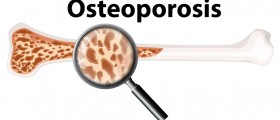
Coral calcium and the main characteristics
When it comes to the proper development and health of bones and teeth, the importance of calcium is very well known. Its deficiency results in the body break down of bones and teeth in order to increase the levels of this mineral in the blood, which is why it is of utmost importance to consume foods rich in it. Besides the fact that it can be found in foods, particularly dairy products and milk, it can also be found in the form of supplements. One form of calcium that is used in calcium supplements is coral calcium, which is calcium carbonate that has trace minerals and magnesium in it. The reason why other trace elements and metals are present is related to the fact that coral calcium can be found in corals and seashells, and they absorb various elements from sea water.
Coral calcium is said to be helpful in the treatment of a number of conditions, among which is cancer, but the fact is that no scientific evidence have confirmed these beliefs. What’s more, the United States FDA suggests that it should be avoided and that it is a fake cure.
Side effects of coral calcium
When it comes to calcium supplements, they are generally well tolerated by those who consume them, and side effects rarely occur. Some of the unwanted effects of this supplement refer to some gastrointestinal problems such as gas, bloating and constipation, but the fact is that even if they do appear, it happens only when the person begins with the use of calcium supplements, and it lasts until the body gets used to the supplement. This is why it is recommended to begin with smaller doses, and to increase them gradually, as well as to drink a lot of water, since it prevents constipation.
Some serious side effects that have been reported in people who used calcium supplements include kidney stones, as well as weakness of the muscles, changes in the heart rate and confusion. Just like with any other supplement, it is also not excluded that the person might experience allergic reaction to coral calcium. There is a list of medications that should not be combined with calcium, or that should be carefully combined in order to avoid interactions. Some antibiotics are also a part of this list.

















Your thoughts on this
Loading...